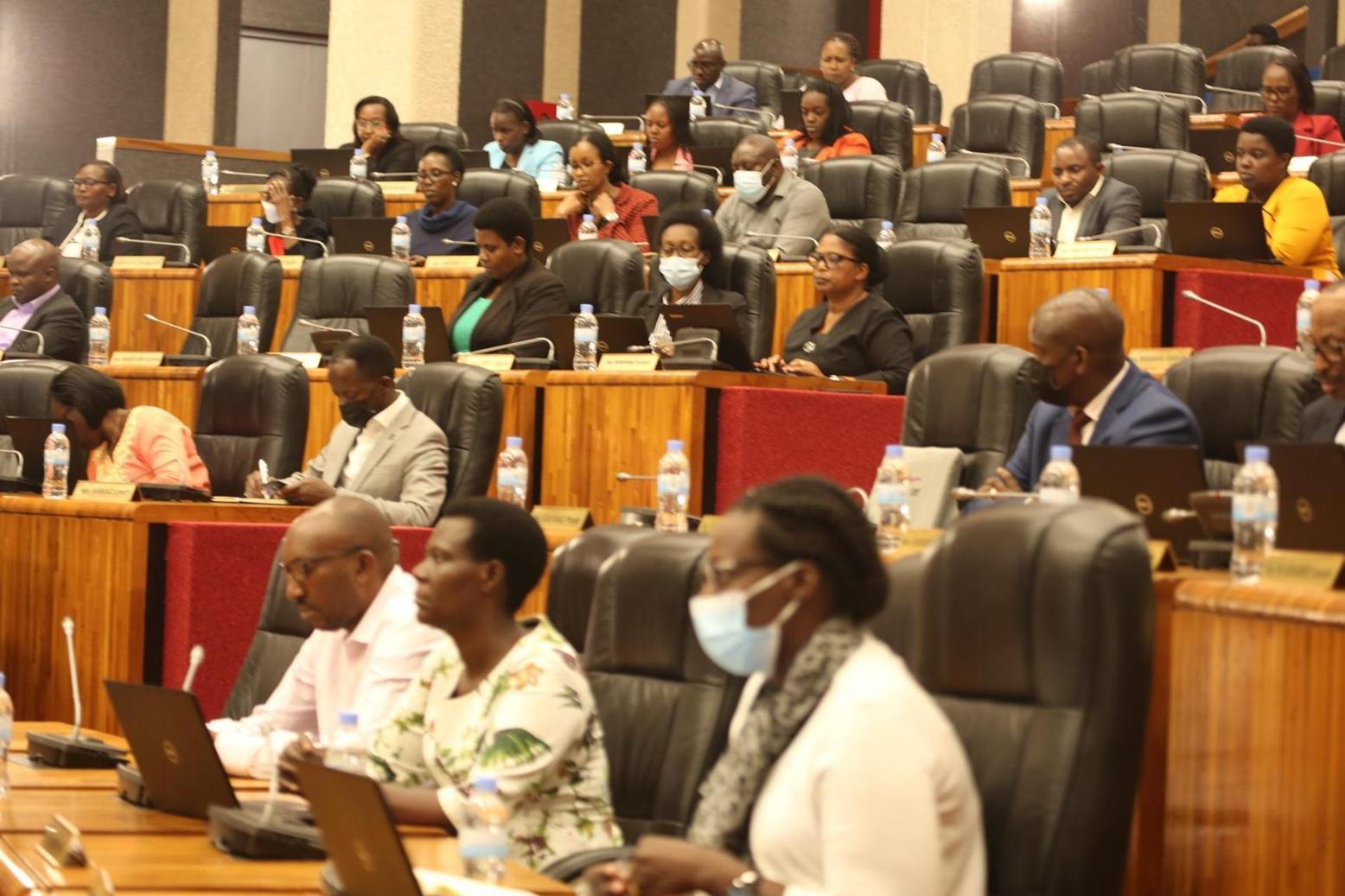Africa-Press – Rwanda. Members of Parliament have expressed concern that some business entities in Rwanda close shop after the expiry of tax breaks awarded to them as part of incentives to attract investments in critical areas.
This, the legislators said, erodes the gains made towards job creation for Rwandans among other negative economic effects.
The lawmakers said this on Monday, July 18 as the Chamber of Deputies adopted its Committee on Economy and Trade’s analysis report of the national investment policy set in April 2017.
MP Théogène Munyangeyo, the Committee Chairperson said that during the interactions with the Ministry of Public Service and Labour, it was realised that from 2017 to 2020, investments amounting to $7,436 billion were made, which supported the creation of 778,136 jobs, or an average of 194,534 jobs annually.
Under the first phase of the National Strategy for Transformation (NST1), which runs from 2017 through 2024, the Government targets to create 1.5 million jobs – or over 214,000 jobs per year.
Munyangeyo however said that that there are two major challenges that they found out;
“One, some of the entities stop their projects after the expiration of the grace period for incentives that they are given, which discontinues the already created jobs,” he said
“Second, many investment projects are concertrated in the City of Kigali, a situation that does not provide employment opportunities to the people migrating from different provinces [rural areas] as the available opportunities are limited,” he observed.
Commenting on this issue, MP Veneranda Nyirahirwa said that it is a concern that should be looked into and addressed.
“One would wonder why they (those businesses) do not continue working despite the support they are offered. If such a situation where people work only during the period when they are [granted incentives like being] exempted from taxes continue, do you think the [country’s] target to create [200,000 jobs per year] can be achieved?” she wondered.
Munyangeyo said that different reasons could be behind this problem, including some investors who were exploiting the law, and those who rush to venture into areas just because they want to profit from the available opportunities in given areas but without well-studied projects.
“At the Committee level, we were thinking about looking into these companies, knowing their category and then making an assessment. But, we had also requested them [Government officials] to carry out a study on this so that we get evidence-based information,” he said.
Munyangeyo said that available documentation showed that there were some efforts the country made, which contributed to the investment progress and supported the national policy implementation.
They include setting an increasing investment climate that attracts investors, where Rwanda put in place many investor attractions, starting from the trusted national policy that eases doing business.
These include enacting laws governing and facilitating investment and trade, including the tax legislation and determining the tax how some businesses are exempted from tax.
For instance, the law of 2015 on investment promotion and facilitation provided that a corporate income tax holiday of [seven years] to a registered investor investing an equivalent of at least $50 million in priority economic areas.
Those areas include energy projects producing at least 25 MW, manufacturing; tourism; health; Information and Communication Technology (ICT), and export related investment projects.
But, it did not provide a clarified time period for the 7-year tax holiday.
Meanwhile, the law of 2021 on investment promotion and facilitation specified that the $50 million must fully be invested within a maximum period of seven years. And, the corporate income tax holiday commences from the first year following the year in which that amount has been fully invested.
Rwanda remains the second easiest place to do business in Africa and is now 38th globally, according to the 2020 World Bank Doing Business report.
For More News And Analysis About Rwanda Follow Africa-Press






